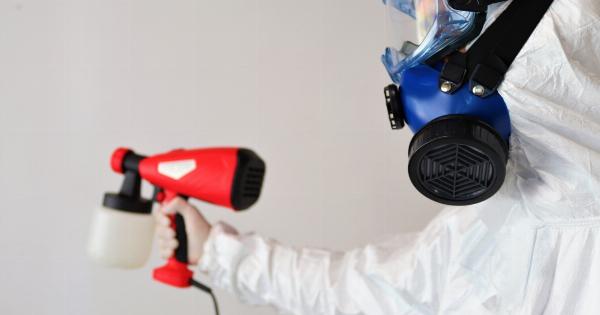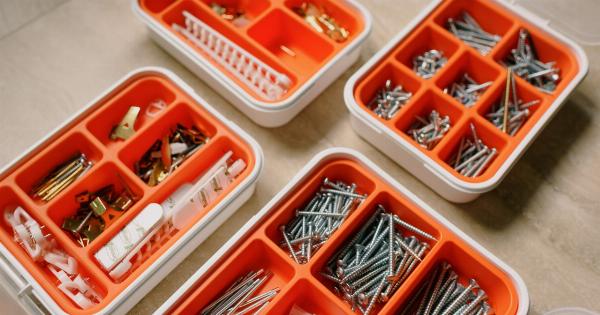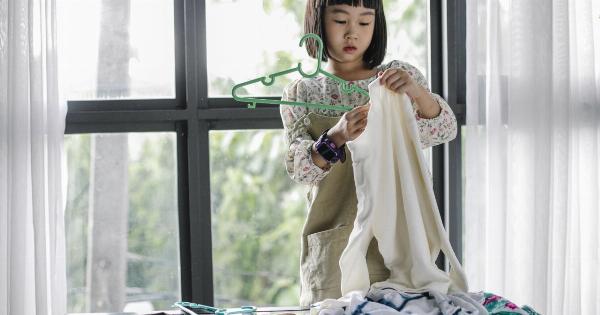For parents of children with asthma, maintaining clean and tidy homes is often a top priority. However, research shows that keeping a spotless home may actually be harmful to asthmatic children.
While good hygiene practices and regular cleaning are important for maintaining healthy indoor air quality, over-cleaning and excessive use of cleaning products can actually worsen asthma symptoms and exacerbate respiratory problems. In this article, we’ll explore the hidden dangers of a spotless home for asthmatic children and provide tips for maintaining a clean but safe indoor environment.
What is Asthma?
Asthma is a chronic respiratory disease that affects the airways, causing inflammation and narrowing of the air passages. This can result in difficulty breathing, wheezing, coughing, and chest tightness.
Asthma is commonly triggered by allergens, irritants, exercise, and temperature changes. It affects people of all ages but is particularly common in children.
The Link Between Cleaning Products and Asthma
While cleaning products are effective for removing dirt and germs, many contain chemicals and irritants that are harmful to asthmatic children.
In fact, studies have shown that exposure to cleaning products can trigger asthma symptoms and lead to respiratory problems such as wheezing and coughing. The chemicals found in cleaning products, such as ammonia, bleach, and hydrochloric acid, can also cause irritation to the eyes, nose, and throat, as well as exacerbating allergies and asthma.
Moreover, many cleaning products emit strong odors that can be unpleasant and overwhelming for asthmatic children.
The Risks of Over-Cleaning
While regular cleaning is important for maintaining indoor air quality and reducing allergens, over-cleaning can actually be harmful to asthmatic children.
Excessive cleaning can lead to the spread of dust and other allergens, as well as aggravating symptoms by stirring up pet dander and other microscopic particles. In addition, over-cleaning can disrupt the natural balance of bacteria in the home, which can have negative effects on the immune system.
While disinfecting surfaces is important for preventing the spread of germs, overuse of antibacterial products can lead to the development of antibiotic-resistant bacteria.
Tips for Maintaining a Safe and Clean Home for Asthmatic Children
Fortunately, there are ways to maintain a clean and healthy home environment for asthmatic children, without compromising their health or worsening their symptoms. Here are some tips:.
Use Natural Cleaning Products
Consider using natural cleaning products that are free from harsh chemicals and irritants. Products made from vinegar, baking soda, and essential oils are effective for cleaning and disinfecting without causing harm to asthmatic children.
Open Windows and Use Fans
Opening windows and using fans can help circulate fresh air into the home and reduce the concentration of pollutants and allergens. Make sure to ventilate the home whenever possible, particularly during cleaning and when cooking.
Vacuum Regularly
Regular vacuuming can help remove dust, dander, and other allergens from carpets and other surfaces. Use a vacuum cleaner equipped with a HEPA filter to trap small particles and prevent them from spreading throughout the home.
Make sure to also clean the vacuum regularly to prevent the build-up of dust and allergens.
Wash Bedding and Soft Furnishings
Wash bedding, curtains, and other soft furnishings regularly to remove dust mites and other allergens.
Use hot water and a mild detergent to kill bacteria and dust mites, and avoid using fabric softeners and dryer sheets which can release chemicals that trigger asthma symptoms.
Manage Humidity Levels
Excessive humidity levels can promote the growth of mold and other allergens, which can trigger asthma symptoms. Use a dehumidifier or air conditioner to maintain optimal humidity levels (between 30-50%) and reduce the risk of mold growth.
Minimize Clutter
Clutter can trap dust and other allergens, making it harder to maintain a clean and healthy home. Encourage your child to keep their room clean and organized, and declutter regularly to minimize the accumulation of dust and other allergens.
Avoid Smoking Indoors
Indoor smoking can cause a range of respiratory problems, particularly in asthmatic children. Avoid smoking indoors and encourage family members or guests to smoke outside.
Conclusion
Maintaining a clean and tidy home is important for preventing the spread of germs and maintaining healthy indoor air quality.
However, for parents of asthmatic children, it is important to balance cleanliness with the need to reduce exposure to allergens and irritants. By using natural cleaning products, ventilating the home, vacuuming regularly, and managing humidity levels, parents can create a safe and healthy environment for asthmatic children.






























